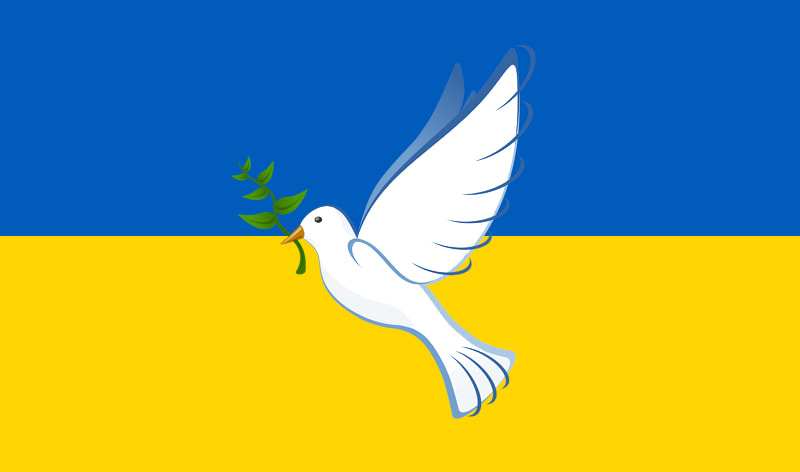|
Unless there is a military breakthrough for either the Ukraine or Russia that enables one side to claim ‘victory’, sooner or later this year, negotiations between Russia and the Ukraine to end their conflict will become necessary. Continued grinding conflict will look increasingly unappealing to them compared with the possibility of a return to some kind of normalcy. Neither do Ukraine’s allies want to run a permanent and continual risk of the war becoming an even more devastating conflict between Russia and NATO. This blog looks at some of the theoretical options. The options
1.Cease fire and territorial standstill The first option is that the two sides would suspend hostilities along the entire line of conflict wherever that line happens to be. An initial stage of ‘non-hostility’ could eventually pave the way towards talks on a more lasting settlement, including possible adjustments to territory. The line might be monitored by an international force, possibly under a UN flag. The difficulty with this option is that any ceasefire-in-place would likely be unstable in the absence of any agreed terms for a more permanent peace, or in the absence of a road map towards them. A state of suspended aggression will not necessarily allow Russia to negotiate more normal diplomatic, commercial and financial relations with other countries. The uncertain prospects for a lasting peace might also complicate Ukraine’s desire to move ahead with EU and NATO membership. An international peacekeeping force might find itself powerless. 2.Ukraine cedes territory to Russia in return for peace A second option in theory is that the Ukraine would cede some of its territory to Russia in return for peace. Such an approach has already been condemned by the Ukraine. It would reward the aggressor. It would appear to retroactively validate the invasion. 3. Russia admits it is at fault and returns all occupied territories including the Crimea The third option would involve Russia making the territorial concessions rather than the Ukraine. It would likely only become an option in the event of a post Putin regime being installed in Russia that wanted to disavow and make a complete break with the Putin legacy. Even in these hypothetical circumstances there would be strong resistances. The huge cost paid by Russian society in terms of lives lost and ruined would have no offset. There would be no container for social grieving such as the Great Patriotic War. 4. Settlement involving Exchange in other forms A fourth option in theory would be for the two sides to agree on an exchange that goes beyond territory. For example, Russia might, in theory, be prepared to relinquish territory in exchange for a peace treaty that would guarantee its security interests and those of the pro-Russian part of Ukraine’s population. The difficulty would be to ensure that the terms of any such Treaty would be observed by the two sides. Trust will be completely missing. Possibly, some form of internationally guaranteed mechanism might be involved. Nevertheless, credibility, or its lack, will be an obstacle to any treaty-based approach. A variant of this approach would be for Russia to agree to relinquish territory in exchange for Ukraine approving a new constitution that would provide protection for the pro-Russian parts of Ukraine and their interests. Ukraine’s existing constitution is what is termed ‘majoritarian’. It allows insufficient protection for minorities. A ‘consensus’ or ‘consociational’ structure is more appropriate for deeply divided and fragile democracies. The advantage of this approach is that the new constitution and its terms could be approved and ratified in the Ukraine as part of the exchange and would not rely on treaty guarantees by third parties. Ukraine’s allies would also have an interest in seeing Ukraine put in place a more inclusive domestic political structure. The ‘options’ sketched here are purely theoretical. There are many difficult questions that surround any approach. Are there any credible third-party interlocutors or intermediaries or guarantors? Would reparations be payable? Would war crime tribunals be set up? With the possible exception of flexibility on the treatment of the Crimea, the negotiating avenues may have little chance in the real world. Some will arouse profound opposition. Nevertheless, as Fred Iklé once wrote, ‘Every war must end’.
0 Comments
Your comment will be posted after it is approved.
Leave a Reply. |
Archives
June 2024
|


 RSS Feed
RSS Feed